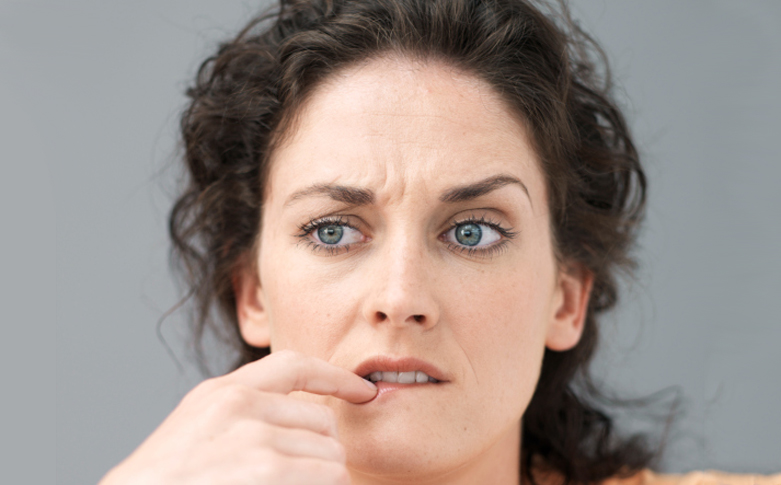
On the popular social media site and link aggregator Reddit, there’s a subreddit — one of the site’s specific subforums — that’s called “It’s a Unix System.” The name is a Jurassic Park reference, and the subreddit is a place where programmers and IT professionals poke fun at the many, many inaccuracies in movies and TV shows that try to portray hacking and other aspects of information technology. A movie like Hackers is full of inaccuracies, providing a field day for IT pros to poke fun at just how off-base it is.
When it comes to TV shows about medicine, real-life medical professionals face a similar predicament. When you’re an expert in something, and you’ve dedicated your life to it, you notice even minor inaccuracies that a layperson might overlook. Even in a show like House, which did make some effort to be medically accurate and which based its medical cases on existing clinical literature, there are moments that would make any nurse or physician, facepalm.
For nurses, the popular Showtime series Nurse Jackie — which recently ended in 2015 — can be particularly controversial. If you’re a nursing student, you may worry about whether negative things portrayed in the show are something you’ll need to worry about. If you’re a nurse, you may feel that it’s an insultingly off-base portrayal of your profession. (Or, you might absolutely love it.)
Here’s the bottom line: it’s fiction. No one should ever take anything medical, seriously, if it’s on a TV show — or technological, or historical, for that matter. Here’s why.
Storytelling and Character Arcs Take Precedence Over Accuracy
For a work of fiction, its writers and creators may have some leeway in how accurately they choose to portray certain technical aspects involved in the show. Whether it’s forensics like on CSI or Bones, history on a show like Vikings, or medicine and nursing careers on Nurse Jackie, many shows will at least make some kind of effort toward realism.
But this isn’t reality, it’s fiction. So, it must be approached as such. For a work of fiction, what’s important isn’t necessarily what’s most realistic, but what’s most interesting and what works for the story and characters. Things like storytelling, plot arcs, and character development are front and center. Things like medical situations are really part of the setting. If it’s more interesting to portray a medical case that couldn’t happen in real life, or to portray a nurse engaging in behavior that would have their licensed revoked in an instant, the show will do so.
Why? Because it’s good TV. And that’s fine. That’s what TV is for. It’s entertainment and escapism. In some cases, a particularly artful or well-made television show may even have a literary quality to it, raising deeper questions about ethics and humanity.
There’s a particular hyperreality to television, a “heightened” quality — particularly to shows created to have a “real” or “gritty” tone to them. At times, this can err toward the grotesque.
The title character of Nurse Jackie has such a gritty feel to her. She’s no saint, and she’s a drug addict who, frankly, violates the Nursing Code of Ethics to quite a degree. Certainly, although nurses may often be conceptualized as kindly and compassionate, which can perhaps create an expectation of selflessness that overlooks our humanity. We’re all flawed. Nurses aren’t saints.
And yet, you could argue that Nurse Jackie takes a seemingly realistic idea of focusing on flaws — notably the title character’s drug addiction, which does reflect on the all too real problem of drug dependency among medical professionals— and exaggerates that into a hyperreality. Jackie’s “play-by-her-own-rules” mentality makes for good TV, but in real life, the serious ethical issues with some of her behaviors and decisions would be incredibly problematic.
Don’t Take It Seriously
Among nurses, Nurse Jackie is a bit of a “love it or hate it” thing. Some people revel in the hyperreality of its over-the-top world, others find the main character absolutely revolting. If inaccuracies in Nurse Jackie’s portrayal of nursing and medicine get under your skin, let it go.
Television is a storytelling medium, as are film and novels. Its foremost concerns will always be not with what’s accurate to real life, but with what makes a compelling story that at show’s intended audience enjoys.
Things like plot arcs and ongoing character development are what matter to TV writers and producers — and indeed, to their audience. People don’t watch TV shows to see a perfectly realistic representation of a profession. If that’s what they wanted, they’d seek out a documentary instead. Fictional television shows tell stories that, ultimately, are meant to present us with a hyperreal and heightened version of reality. Factual accuracy falls by the wayside, especially when it doesn’t contribute to important aspects of storytelling.
It’s no secret that Nurse Jackie and other medical dramas are far from realistic. But realism was never the intention, nor does it necessarily need to be. Is it a good and accurate representation of nursing? No, probably not. Is it a good show? Well, that’s probably subjective, but quite a few people do enjoy it.

















